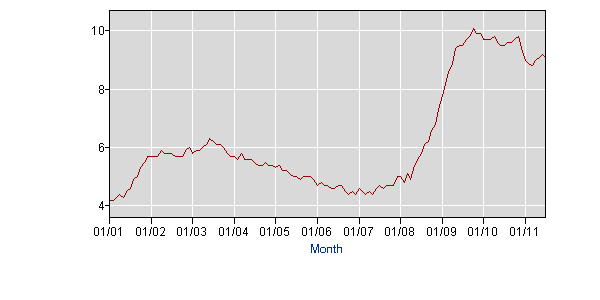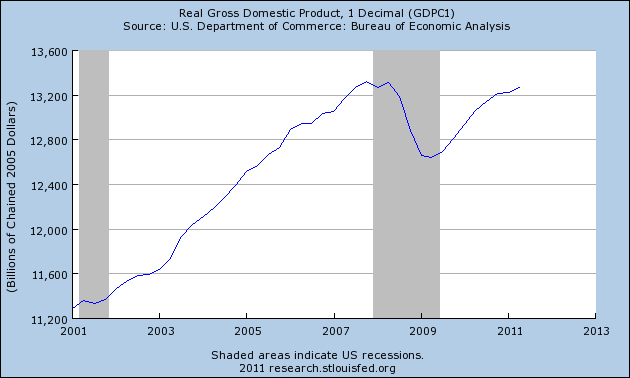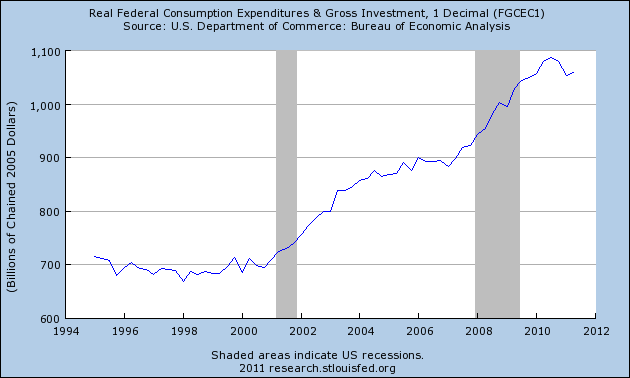Government Stimulus: Polishing the Rotten Apples
Once upon a time in a land far, far away, there was a country famous for its apples. In fact, it produced nothing but apples and so was called Appleonia. The people ate many apples in many different ways: raw apples, baked apples, apple pies, apple fritters, and candied apples, to name just a few. They found lots of different ways to use their apples, even as fuel.
But Appleonians didn’t consume all of their apples. They saved lots and lots of apples for their seeds so they could enlarge their orchards and grow more and more. For hundreds of years, the Appleonians consumed lots of apples and made their orchards bigger and bigger. Everyone in Appleonia worked in the apple business and prospered.
It turned out though that not every place in Appleonia was perfect for growing apples. Some areas were filled with worms that just loved apples. Little by little, the worms began to infest the orchards. No one noticed until one day a young boy opened a barrel and, taking a big bite out of an apple, bit right into a worm. Undeterred, he picked up another, with the same result, and another and another. At last he found an apple that was as good inside as it was outside.
But word spread quickly that there were worms in the apples and that the worms seemed to be spreading from orchard to orchard. People quit harvesting in the infested areas and, even worse, they could no longer guarantee the high quality of their apples as they had in the past. For the first time, they produced fewer apples, and many people were put out of work.
The Appleonian government grew very worried and, after brief consultation with academic experts, came up with an idea. To put people back to work and restore faith in the apples, the government hired lots of people to polish all the rotten apples. Of course, this didn’t really work: the polished apples may have looked better on the outside, but they were still rotten on the inside. Things didn’t get any better. People were still out of work, and the quality of the apples was still hit and miss. Government officials came up with another plan. They hired another bunch of people to spray a thin layer of wax on the rotten apples. Again, their remedy was superficial: the bad apples may have looked gorgeous, but they were still rotten on the inside, and hence worthless.
The people in the government never realized that nothing short of sorting carefully through the barrels, identifying the rotten apples and throwing them out, would set things right in Appleonia’s orchards. Pouring money into efforts to beautify worm-filled apples didn’t really help; it simply prolonged the difficulty.
Here in our own time and place, we can learn an important lesson from the story of Appleonia. A simple parable cannot clarify all of the important issues involved in our situation, but it can help us to see one of its critical aspects.
Appelonia’s rotten apples are analogous to the unsound enterprises that people created during the boom prior to 2008―the houses and shopping centers that could not be sold, the mortgage loans that would not be repaid, the countless complementary investments that were made in order to take advantage of the real estate and construction run-up. These projects were, in effect, worm-infested. When the bust came, the pressing need was to liquidate them as quickly as possible, so that they would not cause other, good apples to be ruined and, especially, so that resources currently employed in maintaining and polishing them would be released for employment in the production of sound fruit that people actually value and will voluntarily pay for.
Unfortunately, for the past eighty years, liquidationist thinking has been discredited among the elites who make economic policy decisions in the United States and other economically advanced countries. Adherence to the loss-and-bankruptcy part of a profit-and-loss system is said to be cruel in politics and unsound in economics. Yet, as we gaze back on the past few years, one has to wonder: has the currently prevailing orthodoxy in economic theory and policy making proved to be a raving success? Even a brief look at what has happened recently ought to raise serious questions about the soundness of the ideas advanced by the best and brightest in the intelligentsia and the upper reaches of the policy-making elite.
During the past three years, the U.S. economy has taken a dive and, in some important ways, remained more or less submerged since it hit bottom. According to the latest government estimates, real GDP fell about 5 percent between its peak in the fourth quarter of 2007 and its trough in the second quarter of 2009. Since then it has recovered slowly, but only back to approximately the same level it had attained at its pre-recession peak. Thus, nothing has been gained during the past three and a half years.
Other aspects of the economy, however, look even worse. Unemployment, as measured by the Labor Department’s most widely cited index, has been stuck at 9-10 percent of the civilian labor force for more than two years.
Rate of Unemployment (%)

Making matters worse, long-term unemployment has increased greatly, as has part-time work by persons who say they would rather have full-time jobs. The Labor Department’s index of aggregate weekly hours worked by private employees fell by about 10 percent between June 2007 and October 2009. Although this index has increased a bit since then, in July 2011 it remained 6.6 percent below its previous peak.
Keynesians advise that in such circumstances, the federal government should increase its spending for final goods and services, and the government has taken this advice to heart with a vengeance. Real federal spending for consumption and gross investment goods increased by 18 percent between the fourth quarter of 2007 and the third quarter of 2010. Although this kind of spending has declined slightly in the past three quarters, it remained in the second quarter of 2011 almost 15 percent greater than it was in the fourth quarter of 2007.
So, we have had Keynesian stimulus aplenty, but the effects have fallen far short of putting the millions of unemployed workers back to work and propelling the economy to a high-employment rate of output. Recent economic conditions indicate that even the paltry recovery that has occurred may be petering out, and many economic prognosticators foresee another steep dive in the near-term future. Doctrinaire Keynesians insist that the economy needs a bigger dose of government deficit spending to recover fully, but less doctrinaire observers conclude that the various stimulus actions have simply failed. More important, perhaps, lenders who have financed the government’s recent spending binge are losing faith in the government’s ability to repay as promised, given the rapid recent run-up in total government indebtedness to the public.
No one is reassured, of course, by the idea that if private investors, sovereign lenders, and foreign central banks won’t continue to bankroll Uncle Sam’s profligacy, the Fed will do so. QE1 and QE2 have come and gone, with no greater success in bringing about recovery than the rest of the government’s ever-changing hodgepodge of loans, guarantees, stimulus packages, bailouts, and takeovers, and its massive borrowing to pay for the whole frantic undertaking. If the government turns to the Fed to monetize its rapidly mounting debt, we can only fear all the more that accelerating general price inflation awaits us.
In light of the foregoing facts, a radical change in policy making seems well warranted.
In politics, however, incumbency counts for a great deal. Officeholders have rigged the system by gerrymandering and other tricks to help to ensure their reelection. Established interest-groups have supported and attached themselves to the president, members of Congress, and bureaucrats from whom they secure government assistance―privileges and subsidies for their members and statutes, regulations, and administrative rulings that hobble their competitors. When a recession occurs, many of those who fall into trouble are, in effect, rotten apples. Their projects and enterprises need to be liquidated if the entire economy is to make rapid, sustainable headway. Their political clout, however, virtually guarantees that they will get bailouts and other government assistance to keep them afloat. They may float for a while, to be sure, yet they are nonetheless rotten. And they are a continuing drag on the overall economy’s recovery.
Thus, we now have, among other things, millions of houses sitting unoccupied, thousands of commercial properties similarly unused, and trillions of dollars in mortgage-related securities and derivatives whose values remain extremely iffy. Much of this debris would have been cleared away already, but for the government’s TARP, its series of stimulus-spending packages, its takeovers of huge auto and financial companies, and the Fed’s corresponding actions to flood the financial system with liquidity and prop up banks and other firms deemed “too big to fail.” Many of these incumbent firms continue to operate, even though they ought to have passed through bankruptcy proceedings long ago. Many banks are little more than zombies, living only by transfusions of reserves from the Fed and investing in little besides U.S. government securities.
All of this amounts to a rotten-apple operation. The contents of the economic barrel are still a mess. If the government and the Fed continue to pour trillions of dollars into efforts that do nothing more than polish the rotten apples, the entire contents of the barrel will become less and less valuable over time. Keynesianism was a bogus theory from the start. Thinking about why the economy succeeds or fails in terms of a handful of economic aggregates conceals everything we need to know if we are truly to understand it. Supposed experts who can’t tell a good apple from a rotten one should be kept out of the orchard. They are not helping. Indeed, they have made matters much worse at this point than would have been the case if the government had done nothing at all to reverse the recession.


